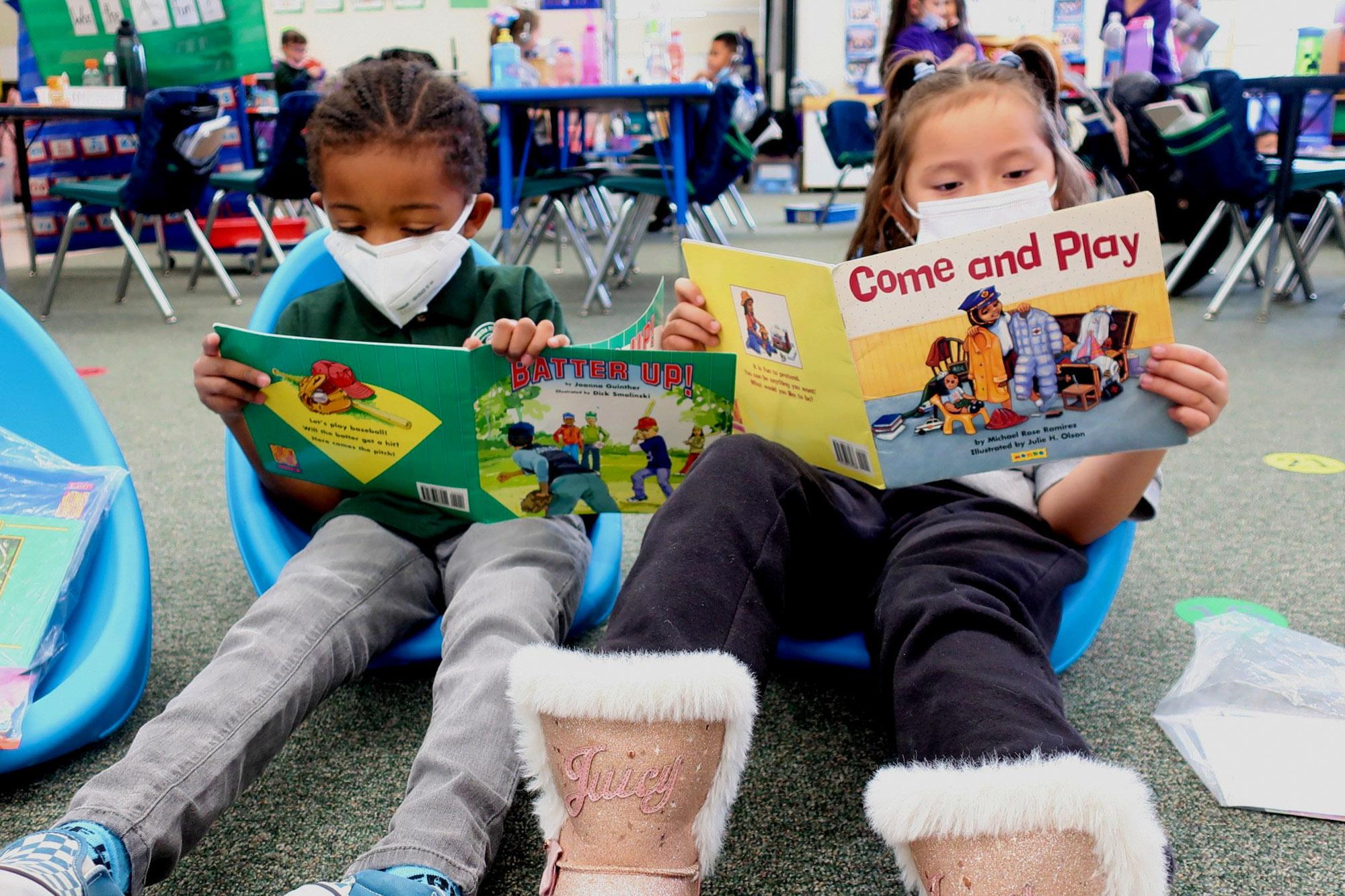
Teacher preparation programs have shown remarkable improvement in how educators cover reading instruction, so much so that Colorado has become one of the top-performing states in the country, according to a new report from the National Council on Teacher Quality.
One-third of Colorado's programs received an A+, and 13 out of 15 programs earned an A or B. None scored lower than a C.
“Out of nearly 700 evaluated teacher preparation programs, we found that Colorado's programs outshine many, demonstrating exemplary commitment to equipping future educators for success,” the council said in a statement.
That’s a marked change from two years ago when the last report was released. Only five Colorado programs earned an A or a B, with six programs earning a D or an F. (The National Council on Teacher Quality overhauled the way it evaluates programs and said the results from the two years shouldn’t be compared.)
Over the past few years, the state board of education and the Colorado Department of Education have implemented policies to hold teacher prep programs accountable for teaching scientifically based reading instruction. More than five decades of research has shown that explicit, scientifically based reading instruction can teach more than 90 percent of children to read.
Researchers looked for evidence that coursework included the core components for reading instruction: phonemic awareness, phonics, fluency, vocabulary and comprehension. Colorado's programs, on average, satisfied 4.4 out of five components and showed almost no evidence of contrary practices across all programs.
The evaluators examined 15 programs, requesting materials from traditional elementary teacher preparation programs. Exemplary programs that earned an A+ include the undergraduate programs at the University of Colorado Denver, Fort Lewis College, University of Colorado Boulder, and Western Colorado University, and the graduate program at the University of Northern Colorado.
“It is our duty as state education leaders to ensure the programs that prepare our public elementary school teachers are teaching the methods of effective reading instruction. We are incredibly proud of the results of the NCTQ analysis; the improvements in how we prepare teachers in reading will lead to real, meaningful differences for Colorado's students,” said Katy Anthes, Colorado’s Commissioner of Education.
Nationally, only a quarter of programs adequately covered all five core components of scientifically based reading instruction. Another quarter doesn't adequately cover even a single component, the report said. Forty percent still teach practices that run counter to the research on effective reading instruction.
“We’re in the midst of a long overdue revolution on the science of reading, but teacher prep programs haven’t fully caught up,” said Heather Peske, National Council on Teacher Quality president. “Prospective teachers — and certainly their students — deserve far better.”
What was a key ingredient to Colorado’s success?
In 2012, Colorado passed the READ Act, the first major move toward evidence-based practices. It also mandated that struggling readers get interventions before the third grade. In 2016, the state board issued new literacy standards for elementary teachers that were aligned to scientifically based reading instruction. Teacher prep colleges were directed to update their coursework to align to evidence-based practices. By 2018, educator prep programs began to come up for renewal to get approved by the state department using a detailed matrix.
Literacy experts evaluate syllabi, conduct class visits and give feedback. State reviewers interview faculty, teacher candidates and recent graduates to evaluate their understanding of reading instruction. Reviewers can recommend a program is approved if it can show it’s made the required changes asked by the state within one year. Changes could include retraining all faculty.
“This new approach to program approval resulted in a swift and dramatic difference in the state’s performance,” National Council on Teacher Quality reviewers wrote.
Fort Lewis College was one of five programs nationally that were highlighted for giving their aspiring teachers lots of opportunities to learn about, practice and demonstrate knowledge of all five reading components. After learning how to design effective reading lessons in ways that draw upon students' cultural and language backgrounds, students have intensive field-based experiences in elementary schools, including in rural and tribal communities.
“These practicum experiences support teacher candidates to develop deeper understandings of effective reading instruction for diverse populations of students … with support and feedback from the course instructor and mentor teachers in the field,” said Jenni Trujillo, dean of the college’s school of education.
Areas for improvement
Council researchers said Colorado still needs to improve in providing opportunities for elementary teacher candidates to practice teaching using scientifically based reading instruction, or SBRI. It said just two of the 15 programs in Colorado provide at least one practice opportunity for each of the five components of SBRI.
It contends one program, Colorado Christian University, teaches two of nine practices that are contrary to the science of reading. It was the only program in the state to have more than one contrary practice. To be knocked down from an “A” grade though, it would have had to have 4 or more contrary practices. Researchers said they found no evidence of “three-cueing” in any program. This strategy, which involves asking students to draw on context, pictures, and sentence structure to identify words, has shown it isn’t very effective with beginning readers.
Research shows three-cueing isn’t the best strategy for struggling readers who should be focused on systematic, and explicit strategies to decode printed words.
Ten programs in Colorado devote some instructional time to how to teach reading to struggling readers, including students with dyslexia. Seven programs in the state devote some instructional time to how to teach reading to English language learners.









